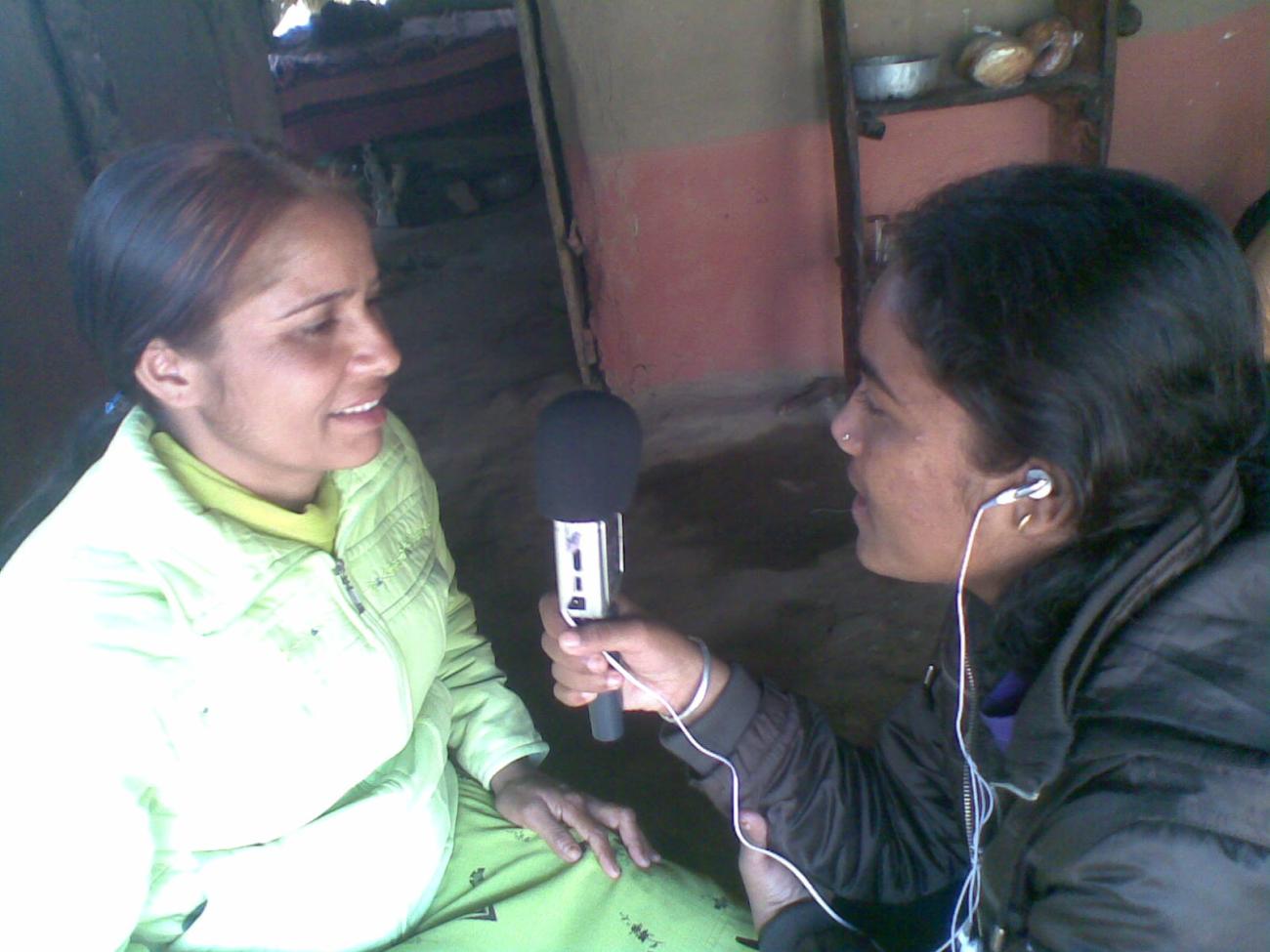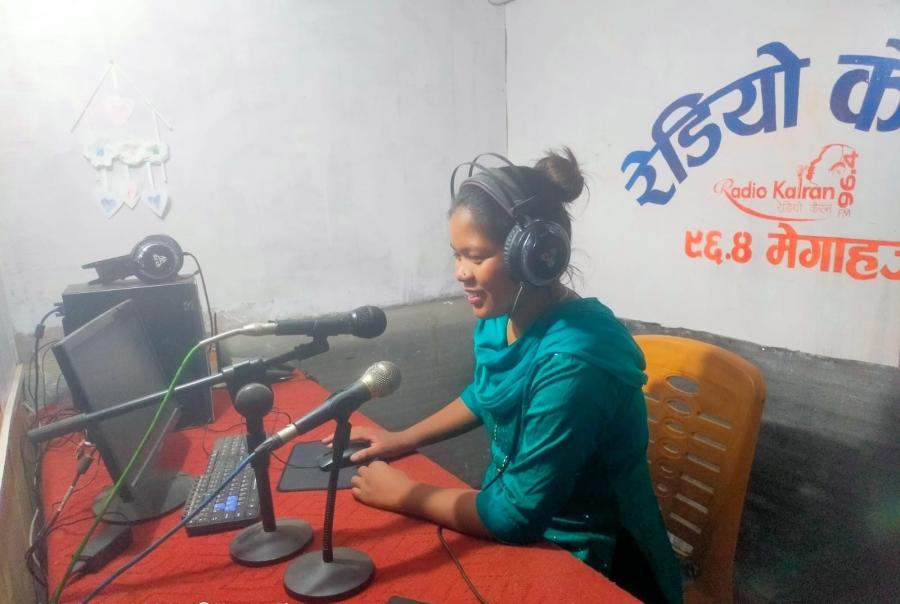
By Kaushal Chemjong, Station Manager, Radio Triyuga
Radio Triyuga 104 FM, a community radio station in Nepal, has made an important step in preserving culture and empowering its community. The station has revived its Indigenous language programming and expanded its reach, helping marginalized communities access vital information and strengthen their cultural identity. This success comes after facing challenges, especially financial issues and the COVID-19 pandemic, which reduced the station’s broadcasting hours and led to the halt of crucial multilingual programs.
The project, "Reviving Indigenous Languages Through Community Radio and Expanding Community Service," concluded earlier this year. It aims to secure sustainable funding and expand operations at Radio Triyuga. Before the project, the station had to cut its broadcast time from 18 to 10 hours each day and stop Indigenous-language programming in Magar, Rai, Tharu, and Tamang. This left many in these communities without important information and cultural preservation.
The project took a comprehensive approach by securing flexible funding for new equipment, training Indigenous youth to be program producers, and reinstating multilingual broadcasts. Key activities included buying two new desktop computers to improve the station's efficiency and production. Four radio producers received special training to create accurate and culturally relevant content. The project also organized storytelling sessions with fluent speakers, Elders, and cultural experts from the Magar, Rai, Tharu, and Tamang communities to capture important oral histories and Traditional Knowledge.
Community consultations were key to the project, ensuring that programming decisions reflected the needs and preferences of various age groups in Indigenous communities. These insights helped expand radio operations, increasing broadcast hours from 10 to 12 daily. The station now offers a wider range of content, including news, talk shows, language lessons, and cultural programs. Most importantly, regular programming in Magar, Rai, Tharu, and Tamang languages was reintroduced, strengthening the station's role in preserving language and culture.
The revitalization of Radio Triyuga has had a significant impact on the communities it serves. Sita Rai, a farmer and community elder from Udayapur, commented on the positive changes: "Radio Triyuga has been a lifeline for our Rai community. Before, we struggled to access important news and government services in our language. Thanks to the programs in our mother tongue, we now understand our rights, learn about health and education, and feel connected to our culture. The storytelling sessions and traditional songs inspire our youth to take pride in our heritage. This project has preserved our language and strengthened our community. We are very grateful for this support!"
Prakash Magar, a youth activist and listener from Triyuga municipality, said, “As a Magar youth, I grew up disconnected from my language and tradition. But Radio Triyuga’s Magar-language programs changed everything. They taught me about our history, rituals, and current issues affecting our people. The radio gave me a platform to share my voice and learn from Elders. During the pandemic, it was our only source of trusted information. This initiative has revived our identity and empowered our community. Please keep supporting Indigenous media—it’s our strongest tool for survival."
While the project has produced many positive results, including boosting cultural pride and sharing knowledge across generations, challenges remain. Radio Triyuga has built partnerships with local Indigenous organizations and received in-kind contributions, but it needs consistent funding and more volunteer support for future growth. The project highlights the importance of flexible funding and strong Indigenous leadership to protect cultural heritage and amplify marginalized voices. Continued advocacy for more government resources and documenting language revitalization efforts will be crucial for Radio Triyuga's lasting impact.

